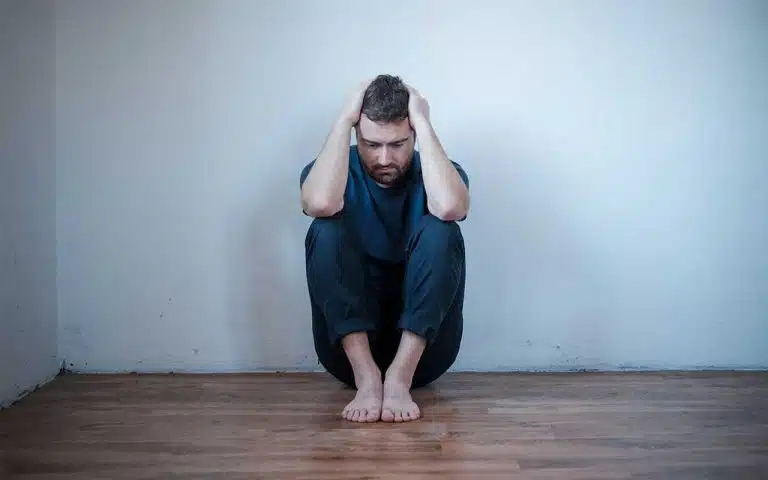Bipolar Disorder & Cocaine Use | Symptoms & Dual Diagnosis Treatment
- The Link Between Bipolar & Cocaine Use
- Bipolar Disorder
- Cocaine Addiction
- Treating Cocaine Addiction & Bipolar

Bipolar disorder is a mental illness that affects the person’s energy and mood levels as well as the ability to think clearly. This mental health disorder makes people experience extreme highs and lows, known as manic episodes and depressive episodes.
Pre-existing substance use disorders are common with a bipolar diagnosis. Although alcohol and cannabis are primarily abused, the stimulant cocaine is next in line, potentially causing a co-occurring disorder of bipolar disorder and cocaine use disorder.
Dealing with a dual diagnosis can be difficult to manage. Behavioral health treatment programs can help address both mental disorders at the same time.
The Link Between Bipolar Disorder & Cocaine Use
Although there are several types of bipolar disorder, when any one of them is combined with drug use, there can be an increased severity of symptoms. People with bipolar disorder can experience mania, hypomania, and depression.
Cocaine use is especially harmful to those with bipolar disorder due to the short-term and long-term side effects.
When cocaine abuse occurs, the person may have extreme feelings of happiness and feel as if they can accomplish more tasks. They can also become paranoid and unpredictable.
Those who have bipolar disorder and suffer from cocaine addiction may have similar symptoms such as mood swings and periods of mood imbalances. This can lead to a depressed mood and other mental health concerns, as well as uncomfortable physical symptoms.
Bipolar Disorder
Mood swings and changes in energy levels frequently occur with those suffering from bipolar disorder. While manic episodes can vary with the type of bipolar, they can be serious and may require hospitalization.
The four types of bipolar disorder include:
- bipolar I disorder (episodes of mania and depression)
- bipolar II disorder (depressive episodes change, but a manic episode isn’t present)
- cyclothymic disorder (chronic mood instability)
- unspecified bipolar disorder (fluctuations in mood levels only, no clear diagnosis)
Symptoms Of Bipolar Disorder
People can experience severe symptoms of bipolar disorder. While they manifest as either a manic episode or depressive episode, the symptoms can differ widely. For instance, those dealing with a manic episode may experience:
- loss of appetite
- talking fast about many things at once
- the feeling that they can do a lot of activities at the same time
- the feeling that they are more important than others around them
- loss of sleep
- irritability
- racing thoughts
- increased impulsivity (such as cocaine use, alcohol abuse, and sexual promiscuity)
With a depressive episode, you’re more likely to experience:
- difficulty concentrating
- suicidal ideations
- feeling unable to complete simple tasks
- talking slowly
- increased appetite
- feelings of hopelessness
- decreased sex drive
- increased need for sleep
When someone has bipolar II disorder, they experience hypomanic episodes that can involve many of the symptoms above during one episode. For instance, a person suffering from bipolar II may have a hypomanic episode where they feel excited and energized, yet still have feelings of deep sadness.
Mood disorders must be monitored delicately.
Cocaine Addiction
Cocaine, when abused, causes mood changes. Much like bipolar disorder, cocaine can cause mood shifts and racing thoughts. Mood shifts can cause the person on cocaine to exhibit stronger, unpredictable emotions.
Cocaine use can end with a “crash” that can cause depression. Then, cocaine is craved again, causing a dangerous cycle of abuse.
Side Effects Of Cocaine Use
Some of the short-term side effects you may experience when using cocaine include:
- irritability
- lots of energy
- paranoia
- being mentally alert
- Hypersensitivity
Treating Cocaine Addiction & Bipolar Disorder
After establishing a baseline, those with mental health conditions and substance use disorders will likely need to undergo detox and addiction treatment. Combining cocaine use with any mental illness can lead to intense withdrawal symptoms and psychosis.
Treatment is likely to include a combination of psychiatry, behavioral therapy, and other integrated care approaches. Dual diagnosis programs, either inpatient or outpatient, must treat both bipolar disorder and cocaine dependence for the best chances of recovery.
If you or a loved one lives with cocaine addiction, mental health and substance abuse treatment programs are available. To learn about our rehab programs, please call our helpline today.
Written by Ark Behavioral Health Editorial Team
©2024 Ark National Holdings, LLC. | All Rights Reserved.
This page does not provide medical advice.
Drug Enforcement Administration - Cocaine
National Alliance on Mental Illness - Bipolar Disorder
National Institute of Mental Health - Bipolar Disorder
National Institute on Drug Abuse - Cocaine
National Institute on Drug Abuse - What Is Cocaine?
National Library of Medicine - The Prevalence and Significance of Substance Use Disorders in Bipolar Type I and II Disorder
Questions About Treatment?
Ark Behavioral Health offers 100% confidential substance abuse assessment and treatment placement tailored to your individual needs. Achieve long-term recovery.
100% confidential. We respect your privacy.
Prefer Texting?
Our friendly support team is here to chat 24/7. Opt out any time.







 Learn More
Learn More








